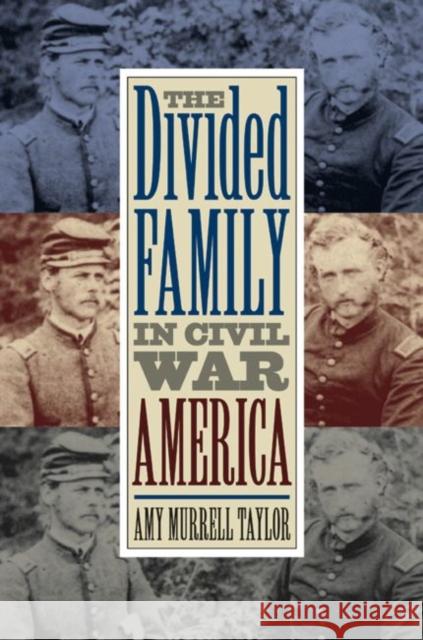The Divided Family in Civil War America » książka
The Divided Family in Civil War America
ISBN-13: 9780807861868 / Angielski / Miękka / 2009 / 336 str.
The Civil War has long been described as a war pitting "brother against brother." The divided family is an enduring metaphor for the divided nation, but it also accurately reflects the reality of America's bloodiest war. Connecting the metaphor to the real experiences of families whose households were split by conflicting opinions about the war, Amy Murrell Taylor provides a social and cultural history of the divided family in Civil War America.
In hundreds of border state households, brothers--and sisters--really did fight one another, while fathers and sons argued over secession and husbands and wives struggled with opposing national loyalties. Even enslaved men and women found themselves divided over how to respond to the war. Taylor studies letters, diaries, newspapers, and government documents to understand how families coped with the unprecedented intrusion of war into their private lives. Family divisions inflamed the national crisis while simultaneously embodying it on a small scale--something noticed by writers of popular fiction and political rhetoric, who drew explicit connections between the ordeal of divided families and that of the nation. Weaving together an analysis of this popular imagery with the experiences of real families, Taylor demonstrates how the effects of the Civil War went far beyond the battlefield to penetrate many facets of everyday life.
The Civil War has long been described as a war pitting "brother against brother." The divided family is an enduring metaphor for the divided nation, but it also accurately reflects the reality of America's bloodiest war. Connecting the metaphor to the real experiences of families whose households were split by conflicting opinions about the war, Amy Murrell Taylor provides a social and cultural history of the divided family in Civil War America. She studies letters and diaries to understand how families coped with division between husbands and wives, brothers and sisters, fathers and sons, and she traces the image of the "house divided" as it emerged in newspapers and popular fiction to describe the war-torn nation.











